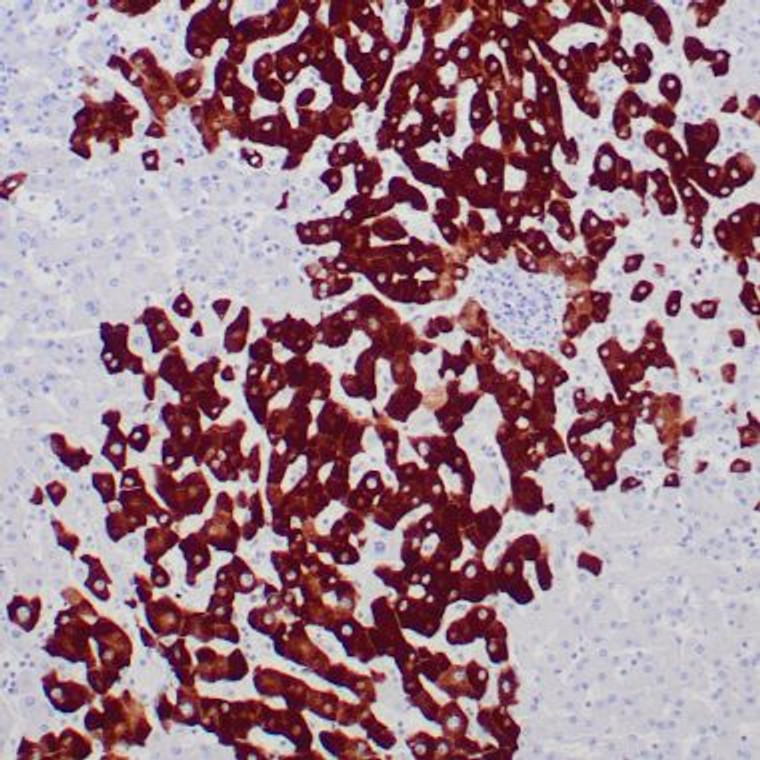| Host: |
Rabbit |
| Applications: |
IHC-P |
| Reactivity: |
Human |
| Note: |
STRICTLY FOR FURTHER SCIENTIFIC RESEARCH USE ONLY (RUO). MUST NOT TO BE USED IN DIAGNOSTIC OR THERAPEUTIC APPLICATIONS. |
| Short Description: |
Rabbit monoclonal antibody anti-HBsAg (Full length) is suitable for use in Immunohistochemistry research applications. |
| Clonality: |
Monoclonal |
| Clone ID: |
ZR393 |
| Conjugation: |
Unconjugated |
| Isotype: |
IgG |
| Formulation: |
Tris-HCI buffer containing stabilizing protein (BSA) and <0.1% ProClin |
| Purification: |
Affinity purified |
| Dilution Range: |
1:100-200 |
| Storage Instruction: |
Store at 2‐8°C for up to 24 months. Predilute: Ready to use, no reconstitution necessary. Concentrate: Use dilution range and appropriate lab‐standardized diluent. Stability after dilution: 7 days at 24°C, 3 months at 2‐8°C, 6months at ‐20°C. |
| Immunogen Region: |
Full length |
| Specificity: |
Positive Control: Hepatitis B infected liver |
| Immunogen: |
Recombinant full-length HBsAg protein |
| Background | Hepatitis B surface antigen (HBsAg) is a glycoprotein on the surface of the hepatitis B virus. After hepatitis B infection, HBsAg appears as the first viral marker. HBsAg can be detected in blood, saliva, breast milk, sweat, tears, nasopharyngeal secretions, semen, and vaginal secretions of patients 2 to 6 months after infection with HBV. HBsAg antibodies are mainly used for the diagnosis of the hepatitis B virus. |
Information sourced from Uniprot.org
12 months for antibodies. 6 months for ELISA Kits. Please see website T&Cs for further guidance




